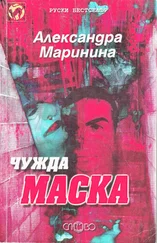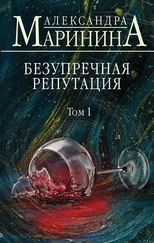“This psycho, as you like to call him, finds his next victim while the first is still alive and well. And not alone. The first victim vanished in September and died in December, and by then three others had disappeared. Why does he gather this harem for himself, can you tell me that? I could understand if each new one disappeared after his predecessor died. So he likes dark boys, and they don’t want to have sex with him when they’re sober, so he gets them hooked on drugs. He keeps them stoned and in his bed. A boy OD’s, he needs a new one. Now there’s a logic in that. But this?”
She threw up her hand expressively sketching a confused shape in the air.
“Why do they all die of an overdose?”
“Maybe he kills them that way,” Korotkov proposed. “Say, he gets tired of them. ”
“Ah, tired of them,” Nastya repeated. “And he looks for a substitute just like the other. What’s the point of trading them in for the same thing? All right, say, he’s tired of a boy who losing his attractiveness because he’s strung out on drugs. But if he gets the next one on the needle, too, he knows that he’ll get sick of him soon, too. What is he planning to do, keep up this assembly line of wretched boys going all his life? Find one, bring him home, then a month later, a second one, even though the first is still alive and well, and in another month, a third boy. What does he do with the first two? They’re still there. They’re not going to die for a while… No, Yura, that doesn’t work. That’s not how it’s happening.”
“How then?”
“Right,” Nastya scowled. “If I knew how it was really happening, we wouldn’t be sitting here, a picture in brown study. Anyway, let’s drop the philosophizing and get down to work. Have you brought me anything?”
“But of course,” Yura said with a big smile. “The next installment of biographical gossip about the residents of the comfortable cottages.”
Nastya could never understand how Korotkov managed to work with abbreviated and disorganized notes and not get things mixed up. She was very careful with information, as if it were a fragile and expensive object that could change its significance with the change of a single letter, number, or comma and thereby lose its true value. Yura left a pile of papers on her desk – copies of applications and reports, sheets torn out of a notebook with hastily scrawled abbreviations. Nastya was terribly lazy in everything that did not concern work, and she could go without cleaning house a long time, but order reigned in her information. Therefore, sighing bitterly over the pile of papers, she took out clean sheets of paper and began copying down neatly and systematically all the new data on the Daydreamers.
Who were the basic inhabitants of those expensive little houses? “New Russians”, of course. The “old” ones couldn’t afford it. But the “new”, when they moved to the spacious brick cottages, usually left their parents behind in the city apartments. Of the twenty families, there were only three who had grandparents living in Daydream Estates, to baby-sit while the parents were at work in their offices. Nastya thought they could exclude those three families for now, it was unlikely that they would bring boys or teenagers to a house with elderly relatives. That left seventeen. Too many, especially if you bore in mind that it wasn’t clear at all that there was a connection between the abducted boys and the cottages. Time and effort would go into a thorough investigation of all the residents, and then they would find out that it was all in vain.
There was one circumstance that seriously hampered the work. No one else knew about the nine missing teenagers who stood out from the rest of missing kids, only the people working at CID Moscow in the serious violence squad. No other living soul knew, with the exception of course, of the criminals. Last year fifty-eight thousand people vanished without a trace in Russia, and forty-eight thousand the year before that. The figures were high for the capital, too. No one noticed those nine dark-haired, dark-eyed, olive-skinned boys in the general mass of the missing. No one but Anastasia Kamenskaya, who liked working with data and knew how to do it. She shared her suspicions with her chief, Colonel Gordeev, who heard her out and agreed that there was a case there. But there was not enough to give this case official standing. There were a lot of young people who died of an overdose. Rarely did they die in their own warm and clean beds. However, it did happen often enough in a place where a body should not be found, and such corpses were moved far from the site of death. They were driven and dumped on streets, in parks, cellars, and courtyards. Tossed into the river. Left in the country. Many of them were habitual users and their lifestyle involved staying away from home for several days or even weeks, so that the formula “did not live at home and died from drugs” included a significant number of people. It would have never occurred to anyone to group several people by their appearance. If Nastya had even hinted any of this to the prosecutor’s investigator, he would have laughed at her. And if he didn’t, if he had seen the point and started a case on dark-haired, dusky boys, the case would have gone to Gordeev and his people. And then there would be demands for results and explanations of time and personnel. That’s why they were doing this on the quiet – to keep everyone out of their hair. In the framework of an investigation of a single fact: checking the light blue Volga’s involvement in the disappearance of sixteen-year-old Dima Vinogradov. The rest was partisan sneaking around.
Making a fair copy of the new information, Nastya thoughtfully regarded the piece of paper that said in large red letters:
Name Solovyov Vladimir
Date of Birth: 1953, 5 April
Place of Birth: Moscow
Occupation: translator
Family: widower
Family members there: none
Family living separately: son, Solovyov Igor, b. 1976.
April 5, Friday, was his birthday. I guess I’ll have to visit him, thought Nastya. To wish him a happy birthday and to take a look at this Dreamland.
* * *
The discussion on marketing the new titles was called for eleven in the morning, but it began, as usual, almost a half hour late. It is amazing that people who work in the same company and have offices on the same floor can never get together to start a meeting on time. You’d think they were coming from different cities. All it took was to walk ten yards from their rooms to the general director’s office.
The general director of Sherkhan Books, Kirill Esipov, a bearded young man of medium height, loved his child and nurtured the company zealously. He had started his career as an editor in a large publishing house and quite by accident came across a gold vein on which he staked his future, starting his own company. That vein was literature of the East. He named his company Sherkhan, after the famous tiger of the Indian jungle in Rudyard Kipling’s stories. Esipov began with a series called Eastern Best Seller, and he borrowed a lot of money. The first few books did not do very well, there weren’t many lovers of sophisticated Oriental prose in Russia, but Kirill believed in his star. He had no desire to inculcate love in the Russian reader for a complex literature that had unfamiliar images and turns of phrase. He published mysteries and thrillers and waited for them to find their readers. He was right. Mystery lovers at last “discovered” the series and enthusiastically began buying up books with the clever EBS logo. His investment paid off, and Esipov started a second series – Eastern Romances. Things started slowly here, too, but Kirill knew how to wait. He found the secret that would make these books popular. It was “Europeanization”. The only truly Oriental things in the books were the author’s names and a multitude of exotic details that ornamented the work. But the action usually took place in Europe and America and a significant proportion of the characters were not of Oriental descent. However, this prose was not very popular in its land of origin, for traditional literature was revered in China and Japan, which was not very interesting to the modern reader brought up in the West. And really, there were not too many modern Russians who could appreciate an image like this: “I could not hold back the tear that fell on my cheek or forget the man who showed me that everything was but a handful of sand.”
Читать дальше

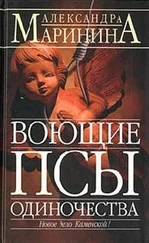
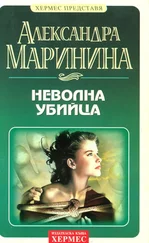
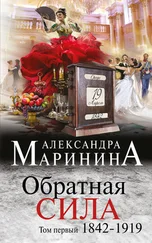
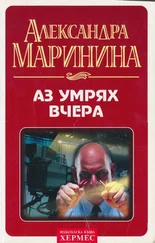
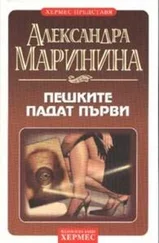

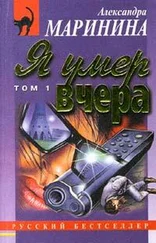

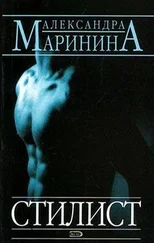
![Александра Маринина - Безупречная репутация. Том 2 [litres]](/books/394616/aleksandra-marinina-bezuprechnaya-reputaciya-tom-2-thumb.webp)
